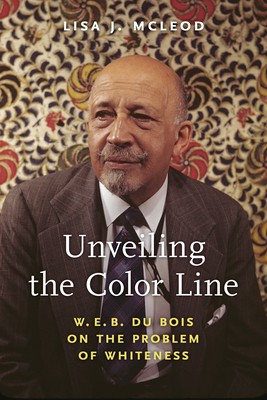
- We will send in 10–14 business days.
- Author: Lisa J McLeod
- Publisher: University of Massachusetts Press
- ISBN-10: 1625347936
- ISBN-13: 9781625347930
- Format: 15.4 x 22.8 x 1.6 cm, minkšti viršeliai
- Language: English
- SAVE -10% with code: EXTRA
Reviews
Description
In The Souls of Black Folk, W. E. B. Du Bois brilliantly details the African American experience. Yet the renowned sociologist was also an astute chronicler of white people, particularly their racism. As Unveiling the Color Line demonstrates, Du Bois's trenchant analysis of whiteness and white supremacy began in his earliest work--his 1890 speech on Jefferson Davis--and continued in every major book he published in his more than sixty-year career, up to The Black Flame Trilogy.
Lisa J. McLeod traces the development of Du Bois's conception of whiteness, and the racism inherent to it, as an all-encompassing problem, whether predicated on ignorance, moral failure, or the inability to recognize the humanity in other people. In clear, elegant prose, McLeod investigates Du Bois's complex and nuanced thinking, putting his insights into dialogue with contemporary racial theorists to demonstrate his continuing value to present-day critical thought and activism.
EXTRA 10 % discount with code: EXTRA
The promotion ends in 23d.13:05:16
The discount code is valid when purchasing from 10 €. Discounts do not stack.
- Author: Lisa J McLeod
- Publisher: University of Massachusetts Press
- ISBN-10: 1625347936
- ISBN-13: 9781625347930
- Format: 15.4 x 22.8 x 1.6 cm, minkšti viršeliai
- Language: English English
In The Souls of Black Folk, W. E. B. Du Bois brilliantly details the African American experience. Yet the renowned sociologist was also an astute chronicler of white people, particularly their racism. As Unveiling the Color Line demonstrates, Du Bois's trenchant analysis of whiteness and white supremacy began in his earliest work--his 1890 speech on Jefferson Davis--and continued in every major book he published in his more than sixty-year career, up to The Black Flame Trilogy.
Lisa J. McLeod traces the development of Du Bois's conception of whiteness, and the racism inherent to it, as an all-encompassing problem, whether predicated on ignorance, moral failure, or the inability to recognize the humanity in other people. In clear, elegant prose, McLeod investigates Du Bois's complex and nuanced thinking, putting his insights into dialogue with contemporary racial theorists to demonstrate his continuing value to present-day critical thought and activism.


Reviews